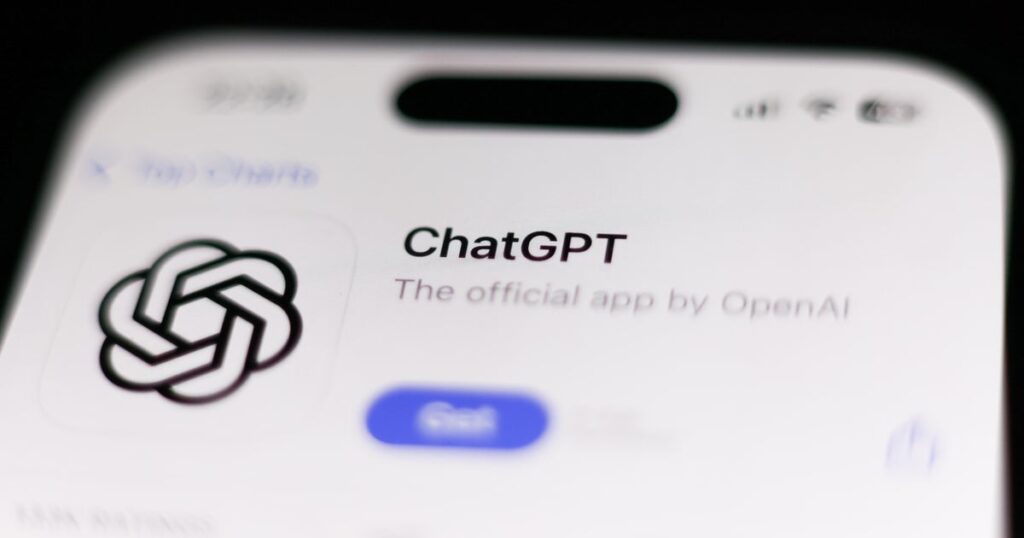On Tuesday, OpenAI announced a significant update to its ChatGPT technology aimed at ensuring the safety and well-being of teenage users. The company will direct individuals under the age of 18 to a specially designed version of ChatGPT that adheres to “age-appropriate” content guidelines. This move comes amidst increasing scrutiny regarding the impacts of AI technologies on younger audiences, including a recent probe by the Federal Trade Commission.
| Article Subheadings |
|---|
| 1) A New Approach to Safeguarding Youth Online |
| 2) Enhancements in Parental Controls |
| 3) Context of the Announcement |
| 4) Industry-Wide Responses to Teen Safety |
| 5) Concerns About Mental Health and AI Usage |
A New Approach to Safeguarding Youth Online
OpenAI is proactively addressing the concerns surrounding the impact of artificial intelligence on younger users. Starting soon, users under 18 will be redirected to a tailored version of ChatGPT designed with specific content rules. The company emphasizes that interactions with minors must significantly differ from those with adults. This approach includes filter mechanisms to block inappropriate or harmful content, such as sexual material. In situations deemed to pose “acute distress,” the technology may alert authorities to ensure user safety.
Enhancements in Parental Controls
In conjunction with content regulation, OpenAI is introducing improved parental controls that will allow guardians to directly manage their teen’s interactions with the chatbot. Parents will have the ability to link their accounts to their children’s, monitor chat history, and set usage rules, including blackout hours. This feature aims to provide a more secure environment while giving parents the tools to guide their kids in using the technology responsibly. These changes are expected to roll out by the end of September.
Context of the Announcement
The announcement from OpenAI comes as the Federal Trade Commission has initiated an investigation into potential risks posed by AI chatbot companions to children and teens. OpenAI has made it clear that its priority remains the safety and utility of ChatGPT for users of all ages, particularly when it comes to the younger demographic. This initiative follows a tragic incident involving a teenager, Adam Raine, who died by suicide, with his family alleging that interactions with ChatGPT played a role in this tragic event.
Industry-Wide Responses to Teen Safety
OpenAI isn’t alone in its efforts to enhance user safety. Various technology companies are implementing similar measures to shield adolescents from inappropriate content. For example, YouTube has announced new age-estimation technology that analyzes user behavior, such as viewing patterns and account duration, to verify the user’s age. This collective industry response illustrates the growing concern regarding how technology impacts the youth, reflecting a shared commitment to creating a safer online environment.
Concerns About Mental Health and AI Usage
Experts and studies, such as a report from the Pew Research Center, indicate significant worries among parents about their children’s mental health, particularly regarding the influence of social media and technology. This sentiment is echoed by a notable percentage of parents who believe that social media poses a negative impact on adolescent mental health. Thus, OpenAI’s new age-specific measures are partially a response to these broader societal concerns, ensuring that their technology will not exacerbate existing mental health issues.
| No. | Key Points |
|---|---|
| 1 | OpenAI is directing teen users to an age-appropriate version of ChatGPT. |
| 2 | New parental controls will allow adults to monitor their children’s usage. |
| 3 | The announcement coincides with a Federal Trade Commission probe into AI impacts on youth. |
| 4 | Other tech companies are also enhancing safety measures for young users. |
| 5 | There are heightened concerns regarding adolescent mental health related to technology use. |
Summary
The introduction of age-appropriate safeguards and parental controls by OpenAI reflects a growing recognition of the need to protect younger users from potential harm. As the company responds to increased scrutiny and tragic incidents linked to AI technology, its measures aim to foster a safer, more responsible online environment for teens. This move, while crucial, also highlights broader societal conversations regarding mental health and technology’s influence on vulnerable populations.
Frequently Asked Questions
Question: What changes has OpenAI made to ChatGPT for teens?
OpenAI has created an age-appropriate version of ChatGPT that includes safeguards to block inappropriate content and additional stress responses when users are in distress.
Question: How will parents be able to manage their teen’s usage of ChatGPT?
Parents can link their accounts to their teen’s and have the ability to manage chat history, set usage hours, and monitor interactions with the chatbot.
Question: Why is the Federal Trade Commission investigating AI chatbots?
The FTC is probing the potential negative effects of AI chatbot companions on children and teens, particularly regarding their mental health and safety.


